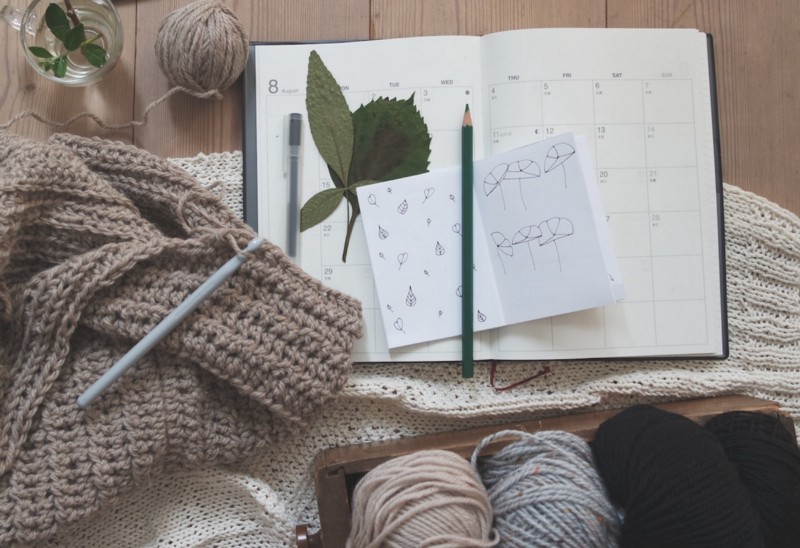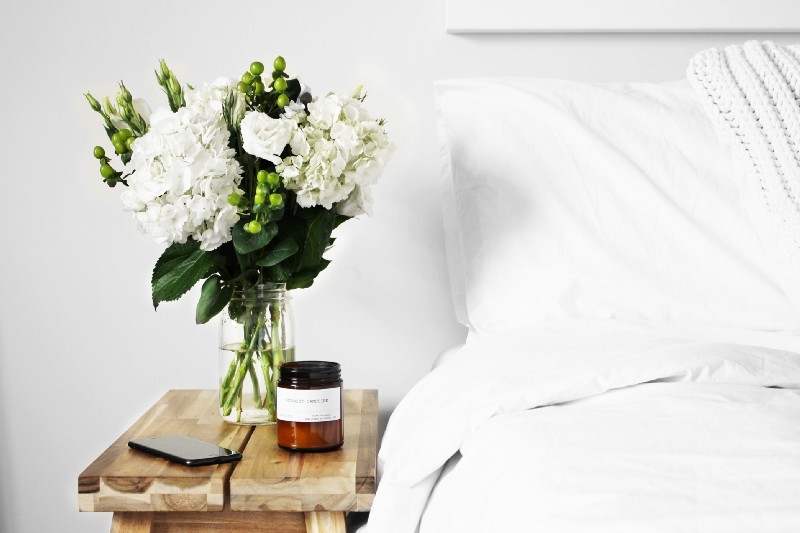
The holidays are often synonymous with stress, exhaustion, and over-indulgence. How can we find a happy balance between enjoying the festivities, treating ourselves, and staying grounded? This month, we’re sharing our favorite guilt-free indulgences with you, so you can create time and space for yourself.
Dream work has been practiced for thousands of years. It’s one of the simplest ways to invite deeper intention and awareness to your life. Today, we speak with our founder and dedicated dream journaler, Nicole Centeno, about how to dream journal, and what it will do for you.
Splendid Spoon: Hi Nicole! When and why did you start dream journaling?
Nicole Centeno: As a child I shared my dreams with my mom. She encouraged it and I loved how much she enjoyed hearing about the funny or scary images I encountered in my sleep.
I started keeping a daily dream journal two years ago to be in deeper contact with myself. I always felt like I learnt things while dreaming. Dream journaling is the engrossing, hilarious, humbling act of trying to put what I learn in my dreams into words.
SS: What are the benefits of dream journaling?
NC: Carl Jung says “Until you make the unconscious conscious, it will direct your life, and you will call it fate.” I believe the unconscious mind is wise: it’s unencumbered by the judgement of the thinking mind. You may not want to acknowledge it as our intuition can be scary, but when you do, it helps you be more in command of your journey. Dream journaling is an invitation to connect with your unconscious.
SS: How often do you dream journal? And when do you do it?
NC: I write in my dream journal every day. If I miss writing in the morning (or the middle of the night), I jot down what I remember as it comes to me throughout the day. Going to bed early and waking up early helps me recall my dreams. I find that keeping my eyes closed while journaling can be helpful to stay in the dream state for longer. Remarkably, I can usually make out my writing :).
SS: How does dream journaling affect your waking life?
NC: The simple act of getting my unconscious onto paper is cathartic and inspiring. I’m a playful, creative person, so I get joy from reliving what I see in my dreams, and seeing synchronicities play out in waking life.
The biggest impact is that I have a reliable encyclopedia of symbolism in my dream journals that helps me navigate waking life. Terrifying dreams are not terrifying to me anymore. When I see something scary, it means there’s an aspect of my personality I’m reluctant to confront — enabling needy behavior is a recent example. When I see plants it’s a symbol of a relationship. Depending on the state of the plants (new growth, abundant, wilting), I know what I need to nourish in that relationship. Ships, elevators, and planes are symbols of spiritual growth and the growth of my business. Your dream journal will be totally unique to you, which is what makes it valuable.

SS: Do we dream more when we’re tired?
NC: I dream less when I’m stressed or exhausted. Recalling my dreams is fun and exciting for me, so maybe when my body needs a deeper rest it guides me away from that excited state.
SS: So, how do we do it?
NC: Leave a journal and a pen next to your bed. If you forget your dreams as soon as you wake up, try remaining in your sleeping position and writing with eyes closed. Don’t worry if all you remember is a piece of clothing, a color, or a feeling. Writing these details down will help strengthen your dream work. Once you feel comfortable with this you can then begin a deeper dream reflection experience:
- Name your dream.
- Re-read your dream and add notes. You may recall more when you re-read.
- How does your dream make you feel?
- Does your dream remind you of anything in waking life?
- Circle any themes or images that felt especially intense or emotionally charged.
- Write down how you will honor the dream in waking life. This could be anything from looking up symbols of images you saw, sharing the dream with a friend, or drawing a picture of the dream.
Dream sharing is a wonderful way to gain deeper meaning from a dream. There’s lots of information about this in Robert Moss’ book, Conscious Dreaming. Or, if you’re in NYC you can come to one of my dream workshops!
SS: Are there any specific signs or symbols we should look for in our dreams?
NC: Rather than look for specifics, it’s important to look for patterns. If you see pools, rivers, and oceans, then maybe water is something to explore. If you see friends from high school, then maybe you are going through an emotional phase that would be helped by revisiting what you passed through as an adolescent. We are evolving and learning until the day we die, and our dreams do a wonderful job of reminding us this.
SS: How does dream journaling make you feel?
NC: Grateful. I feel like I have twice as much time in my days because I’m in contact with my sleeping self.
SS: What other (guilt-free) self-care indulgences will you practice over the holidays?
NC: Watercoloring, going to the movies by myself, catching up on The New Yorker, walking around the city with a cup of tea, getting a massage, taking naps…and recording my nap dreams! I’m really good at indulging myself!
